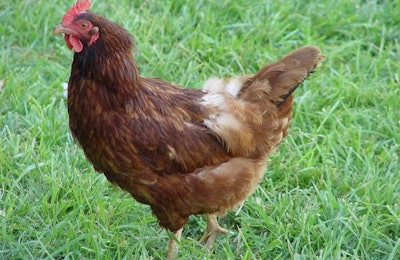
Further outbreaks of highly pathogenic avian influenza (HPAI) have been confirmed in backyard poultry in two regions of Russia, while Zimbabwe’s commercial sector is reported to be almost back to full production after cases at a leading chicken breeding company one year ago.
Russia’s animal health agency, Rosselkhoznadzor, has reported a further 13 HPAI outbreaks in poultry to the World Organisation for Animal Health (OIE) in the past week. Affecting 990 birds, all the latest cases were in backyard flocks. Twelve of the flocks were in the Republic of Tatarstan, and one in Saratov Oblast — both regions having recorded previous outbreaks.
The latest outbreaks bring Russia’s total outbreaks since June to 67, with more than 1.4 million birds lost to the disease through mortality or destruction to prevent further spread of the virus.
The HPAI virus circulating in the country is reported to belong to the H5 group, but further details have not yet been made public.
In mid-July, Pravda reported that, after the avian flu outbreaks in Russia, the European Union (EU) had temporarily banned imports of poultry meat from the country. Heat-treated meat is excluded from the ban, which affects the 18 Russian firms authorized to export to the EU.
Asia: HPAI detected in Saudi Arabia bird market
Saudi Arabia’s agriculture ministry has confirmed to the OIE the recent detection of HPAI virus of the H5N8 subtype at a bird market in the capital, Riyadh. Just one sample from 20 ducks tested positive for the virus, but all 14,675 birds were destroyed. The market was closed, and the premises cleaned and disinfected.
Since avian influenza was first detected in Taiwan in early 2015, active surveillance has been undertaken of poultry flocks for further cases of the disease. In the past week, the agriculture ministry has reported to the OIE that a low-pathogenic avian influenza (LPAI) virus of the H5N2 subgroup was detected at six farms in Pingtung County between early January and mid-March of this year. More than 159,000 birds were affected in four flocks of native chickens, and at two farms with laying hens.
These were the first detections of this LPAI virus since April 2017. The farms were put under movement restrictions, and other poultry premises within three kilometers were placed under intensive surveillance for three months.
Africa: Zimbabwe’s poultry sector recovers
Following the detection of HPAI at one of the largest chicken breeders in Zimbabwe between May and August last year, poultry farmers have been “aggressively restocking,” according to the chairman of the Zimbabwe Poultry Farmers’ Association, George Nare.
He told Chronicle that there is no longer a shortage of chicken or eggs in the country.
Further expansion of the sector is being held back, however, by the high prices of poultry feed — particularly corn — day-old chicks and chemicals, Nare said.















